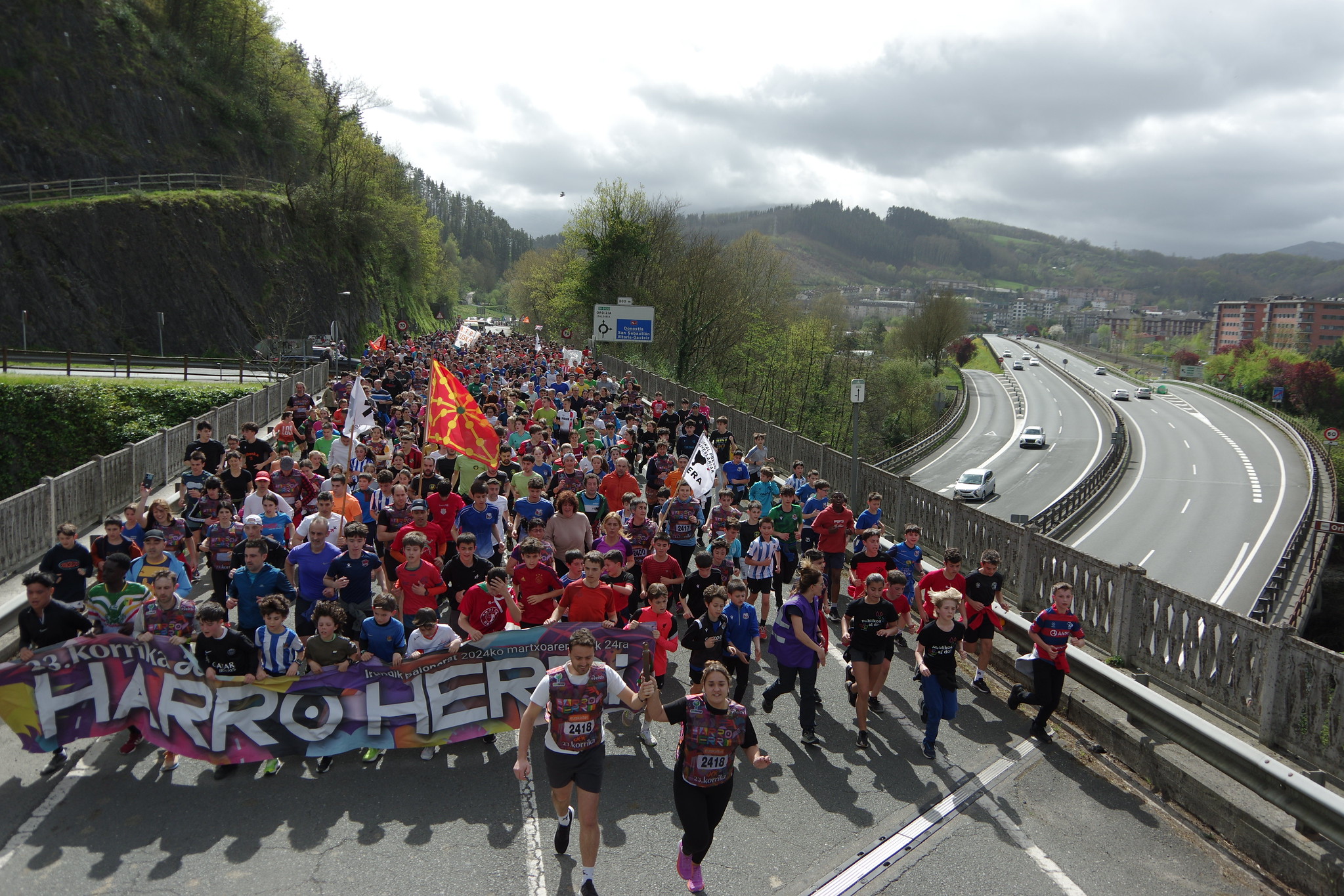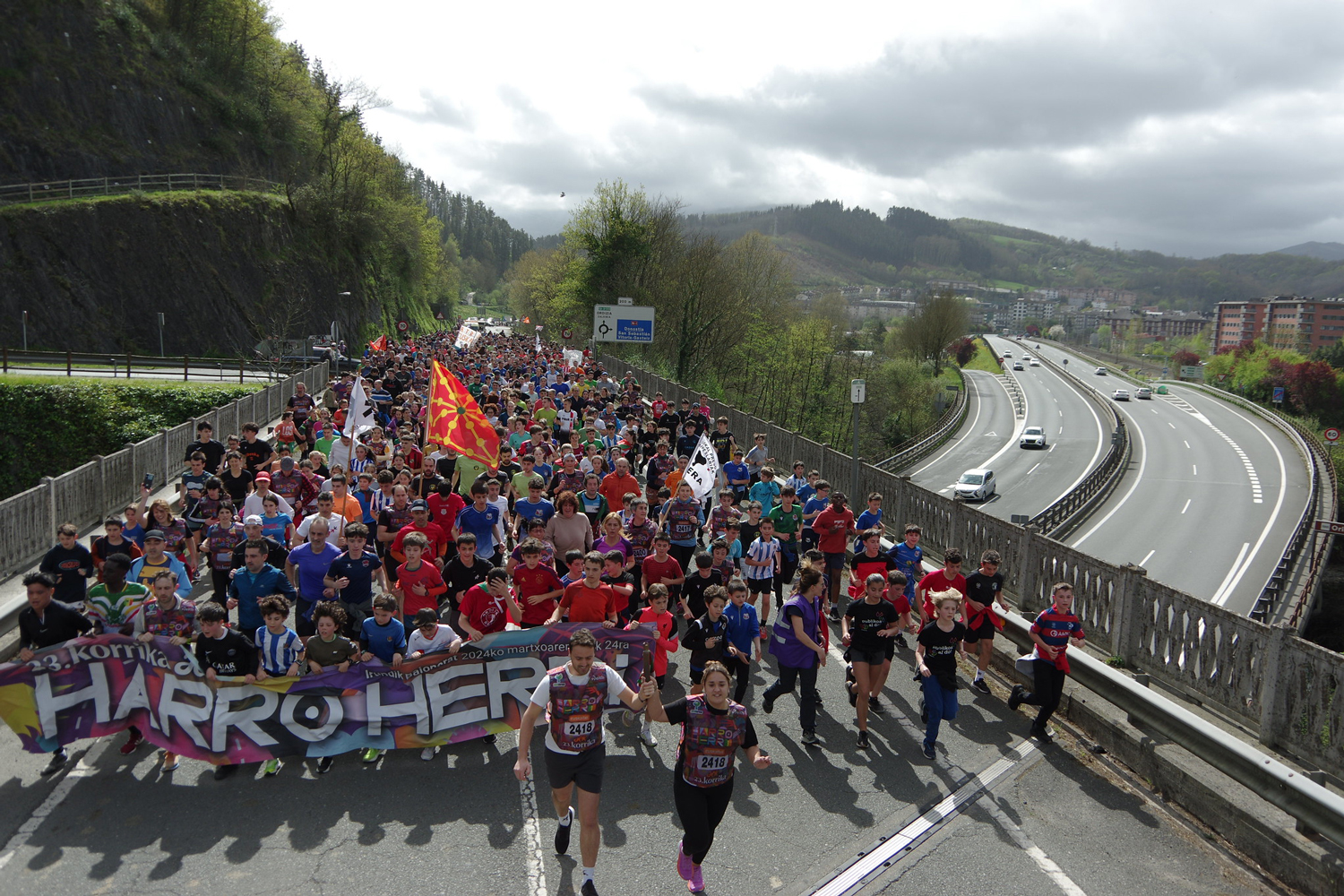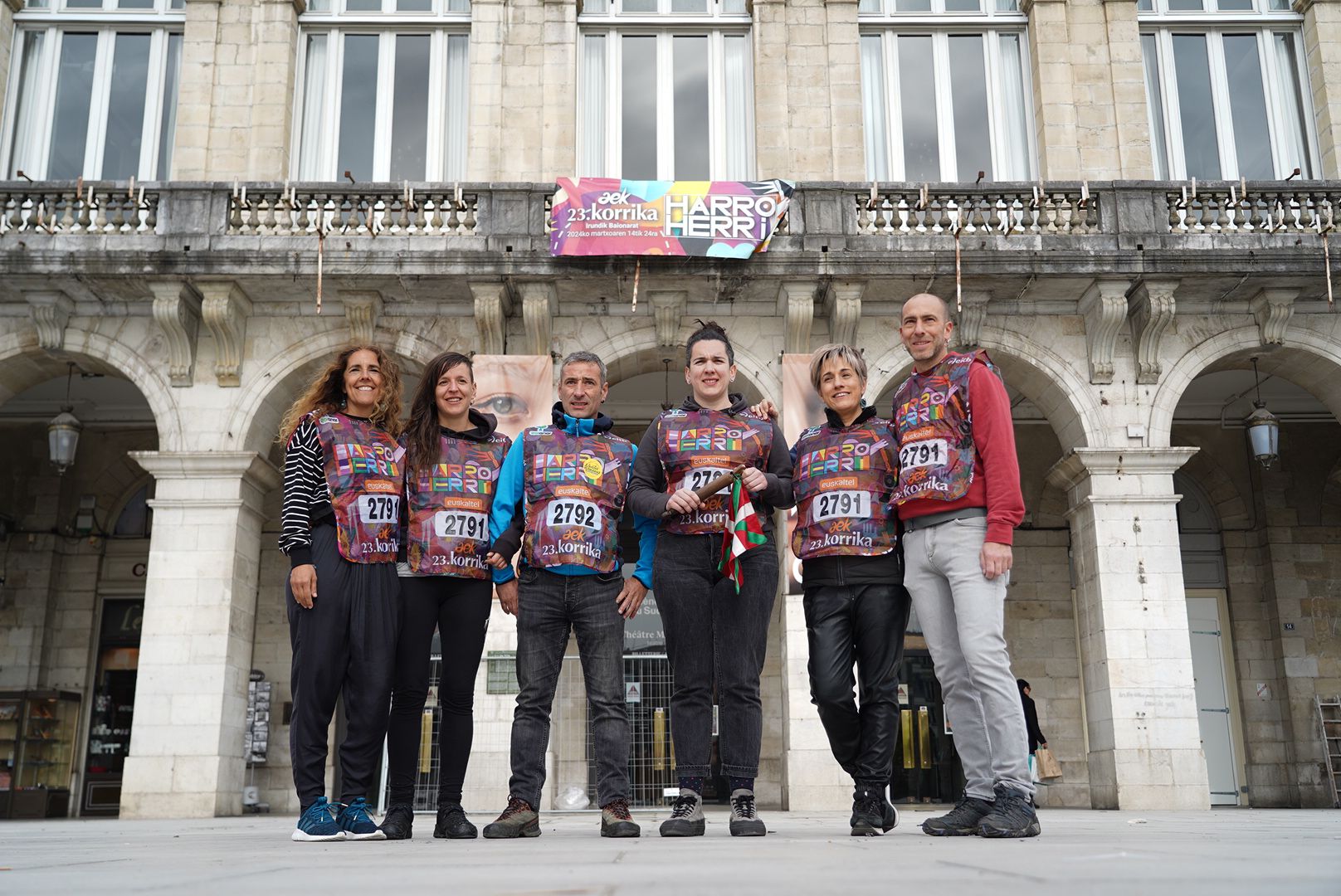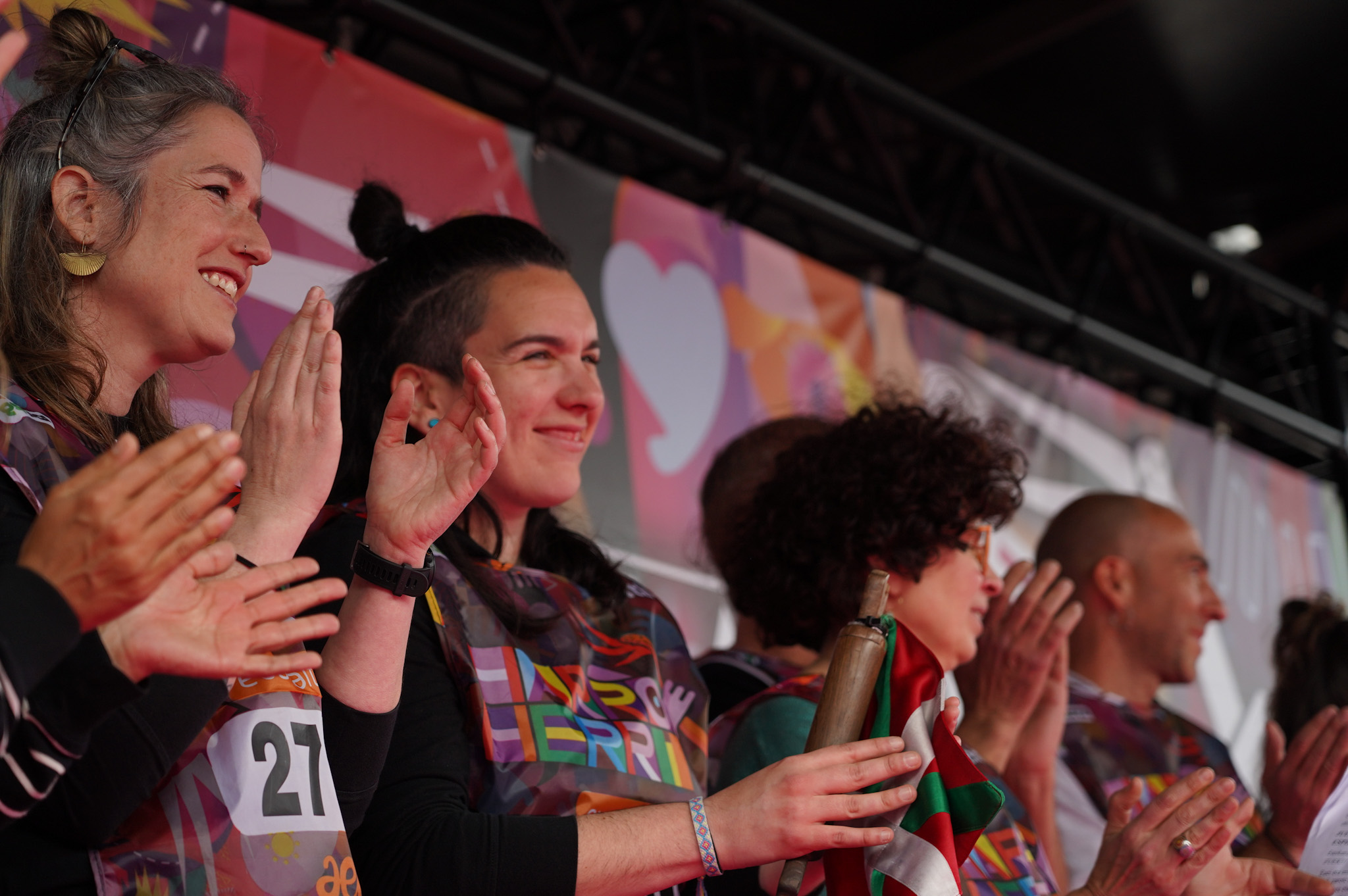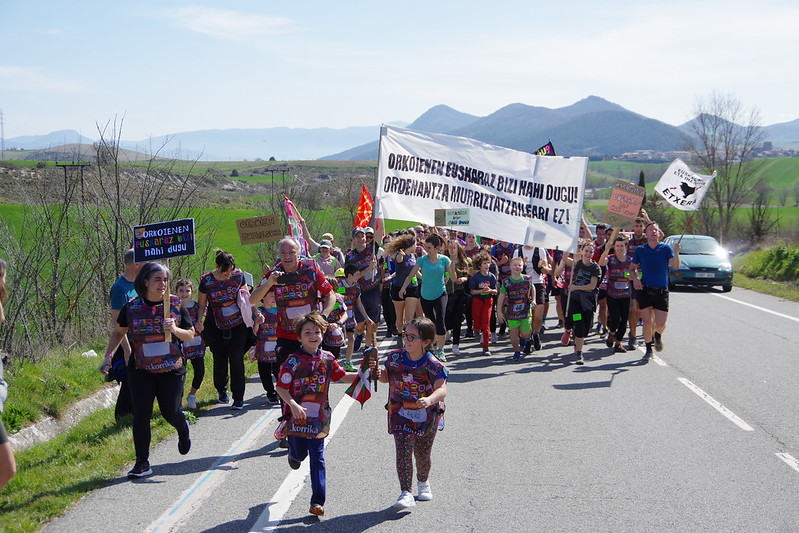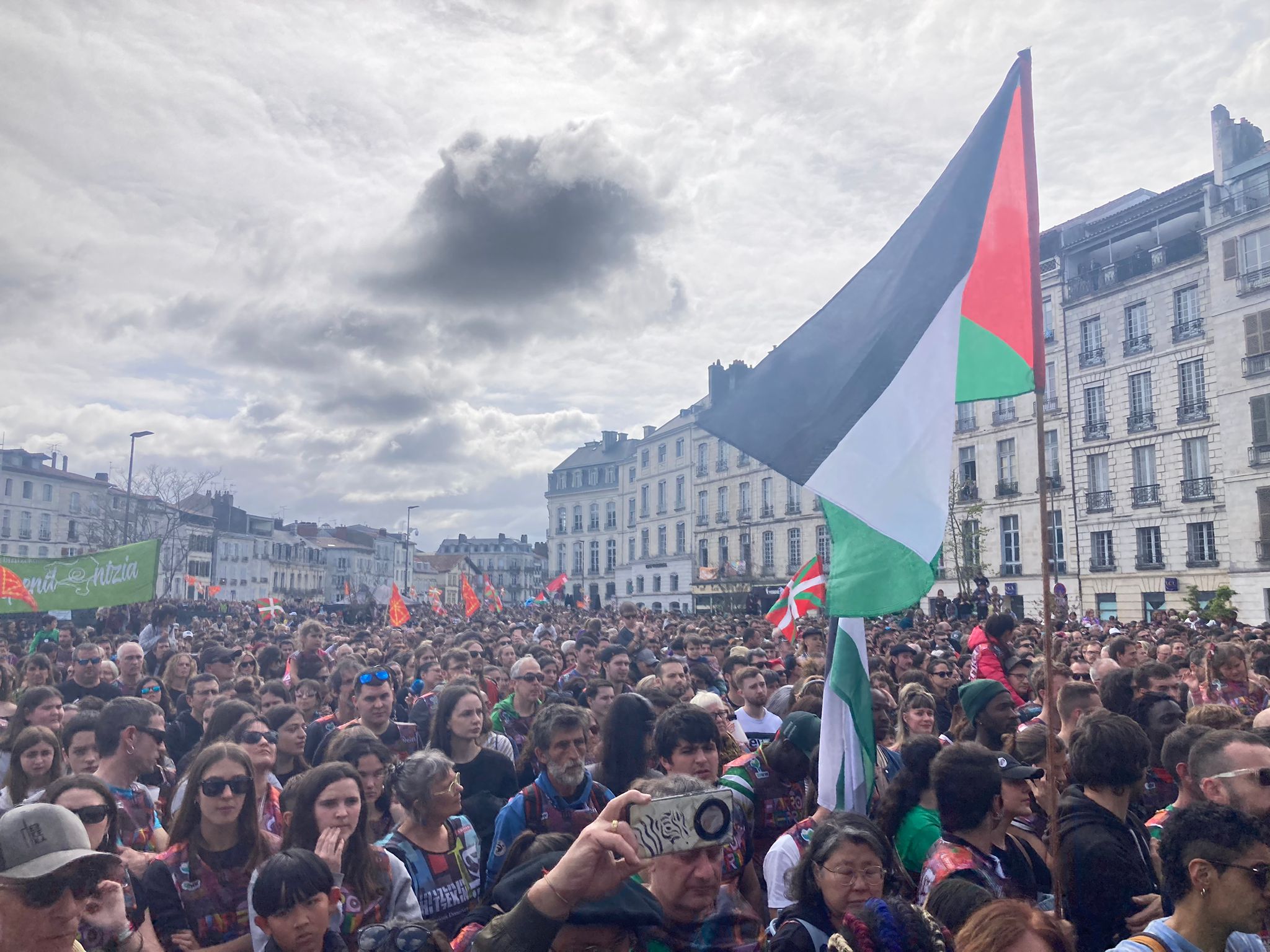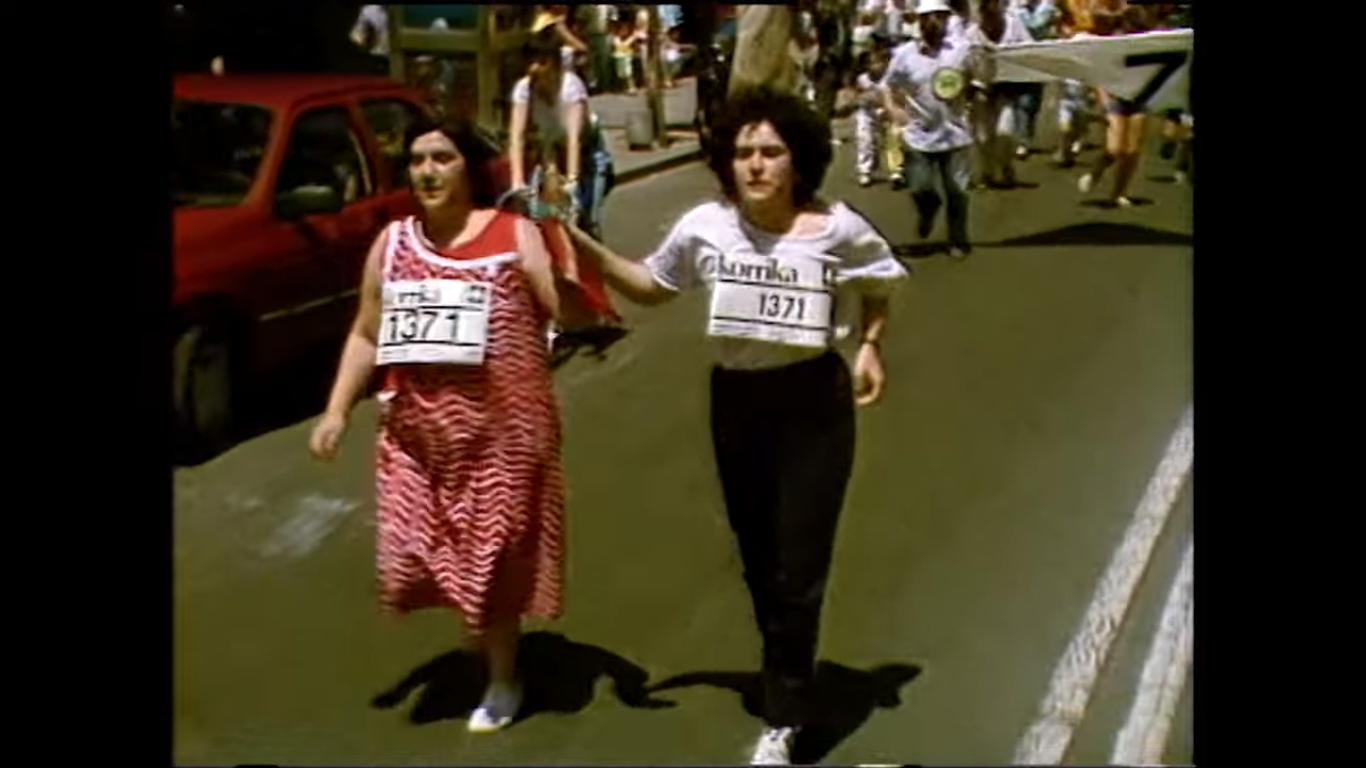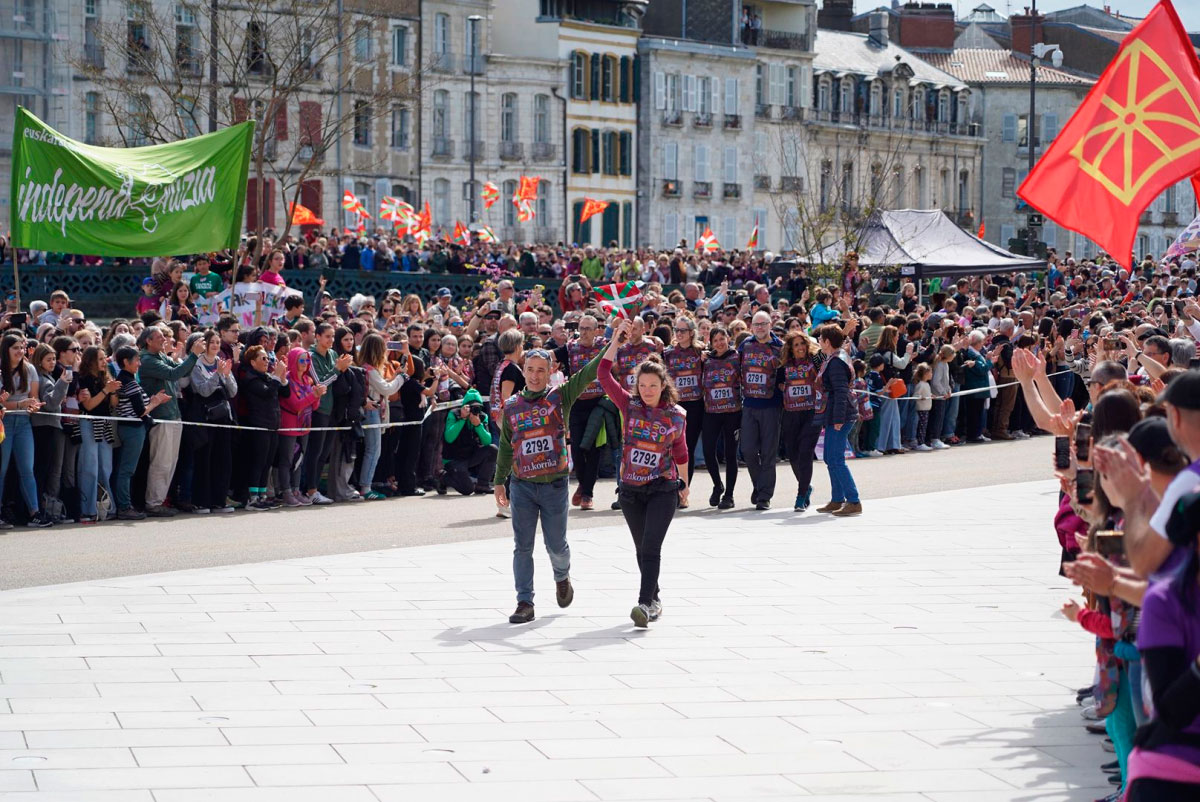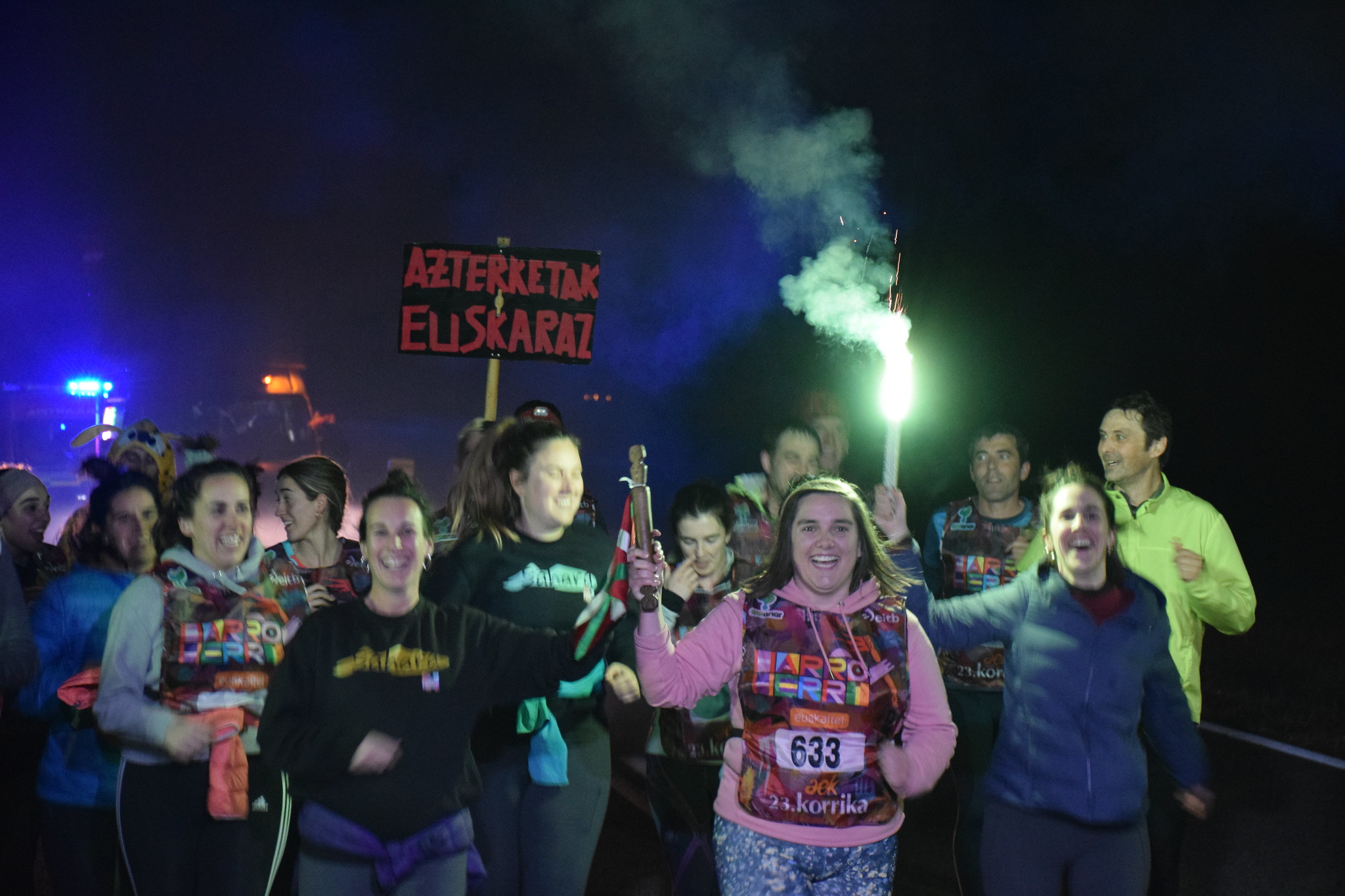“Euskera has to recover public space”
- 23. In the framework of Korrika, AEK or Ihintz-Oliden, coordinator of the Adult Literacy and Euskaldunization Coordinator of the Northern Basque Country, Enbata has raised several questions. Next, the published interview, AEK and Korrika allow us to learn more in detail, making it clear that in Ipar Euskal Herria there is a need for a real public linguistic policy that affects transmission, teaching, motivation and use, setting objectives, consensus measuring devices and securing resources.

What are the objectives of AEK in Iparralde?
The Iparralde Federation of Night Schools AEK was founded in 1980. At that time, AEK allowed the grouping of Basque courses offered in the different municipalities and working with common methods and resources in this process of Euskaldunization of adults. The objective of AEK is to create projects that promote the Euskaldunization and literacy of adults and their use. For this purpose, the Basque Country, the knowledge of the Basque Country by all the inhabitants of the Basque Country and the use of the Basque Country in daily life with normality and comfort. AEK joins public education. It's an open popular movement, aimed at all adults. He is committed to being an active agent of the Basque Country. It promotes attitudes in favor of Euskera, creates and disseminates opportunities to live in Euskera. He works to achieve the Basque Government, together with other agents in the Basque sector.
How is AEK organised to advance these objectives?
Currently, AEK offers different formulas for Basque learning.
Our largest number of students is based on Night Schools. We have thirteen Hendaia Night Schools to Maule and teach courses in locations where there is no Night School. Although we call night classes, we offer day and afternoon courses. Students take three, five or six weekly courses. In addition to the Nocturnal Schools, during the holidays we organize courses of one or two weeks duration, with a full day. In summer we also offer boarding schools in Urepel and Mendikota. In addition, we propose intensive courses of six months to reach level B1 and/or C1. It is the fastest process to learn Basque, as about 35 courses per week are taught.
"Payments are not the same amount as expenses, but we assume those losses. Anyone could raise prices, but we firmly believe that learning Basque is a free right within a public language policy"
Finally, we also offer workers the possibility of learning Basque in all kinds of work, we call it the Xede area. They are, in most cases, workers from local or local authorities and also from the private sector. A few years ago, the Basque Urban College identified the shortage of children who knew Euskera and AEK offered courses for Euskaldunizar some childcare workers. The supply is therefore very varied and is constantly adapting to new needs.
What is the year start photo of AEK Iparralde?
The penetration campaign has been positive and the figures have increased slightly by one year. 1240 students have enrolled in Night Schools, a good brand for us. It is a sign that people want to learn Basque. Courses also attract people, an offer that has boomed greatly in recent years.
In the intensive course of six months we will go from four to five groups, located in Anglet, Itsasu and Ezpeleta. This offer is also expanding.
Finally, workers have the opportunity to learn Basque in working time. This year we have 23 groups to meet the demands of the communities and in three private companies we offer Basque courses. In this area we have 196 students, with an increase of 10%. In total, about 1,600 students study Basque at AEK and we will teach 32,000 courses.
From the staff, among all areas we are about 70 workers and we are glad that in recent years we have approached new and young people.
They insist that in order to eliminate the economic obstacle to learning Euskera, prices should be kept as low as possible. Motivating gratuity (central axis of the AEK) with institutional support. What is the situation in Iparralde?
AEK insists on the free learning of Euskera. In our day to day, this claim is made by guaranteeing the prices of courses in Schools and Night Courses, as low as possible. However, the payments of students working in these areas are not proportional to the training costs, but we take on these losses. Anyone would say prices rise, but we firmly believe that learning Basque is a free right within a public language policy. Today we receive a general subsidy from the Basque Public Institution, but that economic burden is unfounded. AEK asks for a subsidy per activity, i.e. for each course that is given annually. In the Basque Country the subsidy is around 60% and in Navarre around 39%. We in Iparralde also demand a financing system.
In early 2024 years, the Basque Public Institute (EEP) will agree language policy for the coming years and vote on the budget. What recommendations has AEK made to the institutions to promote a new language policy within the Basque Confederation?
If public institutions have serious intentions to protect the situation of the Basque country, they cannot continue as they have done so far. The Euskera Public Entity has the obligation to develop, define and implement a shared public language policy. At the level of the Northern Basque Country and within each institution. The Public Institution of the Basque Country should be the engine of the linguistic planning of the different institutions. It must be the driving force for a bold linguistic policy and not the space for consensus to limit to a minimum, nor the whitening of what each does.
"If public institutions have serious intentions to protect the situation of the Basque Country, they cannot go on as before"
According to UNESCO, the survival of a language can be assured by 30% of speakers. It must do a study that analyzes the policies of linguistic recovery carried out in the world (Hego Euskal Herria, Québec, etc.) and propose sectoral planning. The Public Institution of the Basque Country must present a roadmap so that the number of vasco-speakers reaches from 19% today to 30% and determine the number of vasco-speakers to be created year after year, according to the areas and age groups. Where, after setting measurable targets and over time, the measures taken are insufficient to take the necessary corrective measures. We need a real public language policy that affects transmission, teaching, motivation and use, setting objectives, agreeing on measuring instruments and securing resources. The Basque country must recover public space. Until Article 2 of the French Constitution is amended and the official status is acquired, the Northern Basque Country must obtain the declaration of territory of experimentation for linguistic recovery. Without Euskera, for there will be no “Euskal” Herria.
This year 23. It's the year of Korrika. This gigantic initiative for the Basque Country aims to raise awareness and raise funds to strengthen the daily work of the Basque Country. What opportunities do different citizens and agents in the Northern Basque Country have to strengthen the reintegration campaign on the occasion of the Korrika?
Korrika is fundamental for the survival of AEK. Thanks to the Korrika every two years we balance our accounts and the Korrika helps us move forward, helps us make the people before. We offer different types of help in the Korrika season, being Korrika Laguntza and 23. Buying the material from the Korrika, the back is also on sale in the Night Schools and the day the Korrika passes will also be on sale. Finally, we also offer the possibility of bringing the witness in kilometres to associations, collectives, people’s houses and institutions. Businesses and businesses also have the opportunity to promote the Korrika by sponsoring a kilometer or making Korrika Lagun. The students of the night schools will return to the establishments asking for economic support in their localities. Korrika Kulturala is also fully performing. In the weeks before the Korrika we offer cultural activities in Basque in different towns, showing the diversity of the Basque culture.
Finally, can you give us details of the motto of Korrika Harro Herri?
This year's motto is Harro Herri: Harro eta Herri. We want to assert the possibility of speaking without shame in our language, at home, on the street, at work, everywhere. We mean that we Basques are proud of our language and of what we are. And Herri, because it's the language that brings us together. We want to strengthen that sense of unity in order to move forward together in the future. Because this proximity generates the Basque community. 23. In this Korrika we want to claim Harro, but not agree. It is essential to have an impact on public awareness and activation in order to strengthen the normalization of the Basque country throughout the Basque Country, but this responsibility cannot be foreign to private individuals. Together with the efforts of the citizens, the institutions have an important responsibility to advance the normalization of the Basque country and to give firm answers to the current reality: we need bolder language policies and proportionate resources to guide them.
We Basques move our feet behind the witness of Korrika to proclaim that we want to survive as a Basque people in favor of our language, with the aim of the Basque Country we desire.
The tipi-tapa is the first step taken by a migrant person who leaves his homeland in Africa,... [+]
Not more than a year living in Vitoria when I first saw Korrika. It was daylight, I was carrying my daughter in a backpack, and a bunch of speakers around me, and among those friends, Rosa, who is still beside me. About her daughter, what to say, is almost 14 years old, and in... [+]
For eleven days, from 14 to 24 March, the corners of Euskal Herria will run 23 March. Running. Photographs sent by AEK are being collected in this gallery.









.jpg)


